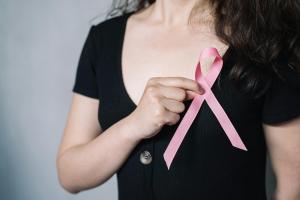Top Stories
Urgent Call for Breast Screening: Early Detection Saves Lives

UPDATE: As Breast Cancer Awareness Month unfolds, BreastCheck, Ireland’s national breast screening program, urgently calls on eligible women to attend their first screening appointment when invited. This crucial message comes as new studies reveal that women who skip their initial screening face a significantly higher risk of dying from breast cancer.
According to a recent study published in The British Medical Journal, the long-term mortality risk for women not attending their first screening invitation is alarmingly elevated, despite their overall cancer risk being similar to those who do attend. The study highlights a troubling trend: women who miss their first appointment are less likely to return for subsequent screenings, leading to delayed cancer detection and reduced treatment success.
Dr. Alissa Connors, BreastCheck’s Lead Clinical Director, emphasized the life-saving importance of this initiative. “Attending your first breast screening isn’t just about one appointment—it can influence your chances of survival decades later,” she stated. “This October, our goal is to inform every woman about the significance of early detection.”
Statistics reveal a concerning reality: 50% of women do not attend their first screening appointment. This figure drops to 25% for those who receive reminder invitations. However, the positive news is that over 85% of women who attend their first screening return for future appointments.
Dympna Cremin, a 66-year-old breast cancer survivor from Castletroy, Limerick, shared her personal story in a BreastCheck video. Diagnosed with grade 2 cancer in December 2021, Dympna credits early detection from her screening three weeks prior for saving her life. “I am very grateful it [breast cancer] was found early. I attribute that to BreastCheck,” she expressed. “Please have your checks, respond to your letters; screening saved my life.”
BreastCheck has provided over 2.5 million mammograms since its inception and aims to screen over 170,000 women in 2024 alone, maintaining a strong participation rate of 72%, exceeding their 70% target. The program strives to ensure that women receive their first screening by age 52, although some may receive invitations as late as age 53, depending on regional screening schedules.
“Ireland’s population is growing, with 100,000 more women now eligible for BreastCheck than six years ago,” added Gráinne Gleeson, BreastCheck Programme Manager. The service is committed to expanding access through innovative solutions to meet the needs of a growing population.
In light of this urgent call to action, BreastCheck is also making strides to enhance accessibility. They are launching a recruitment campaign for more radiographers and refining their services to ensure that women who are waiting the longest receive timely screenings.
The message is clear: attending your first breast screening can be life-changing. Women aged 50 to 69 are encouraged to check their registration status and prioritize their appointments. BreastCheck is dedicated to providing a holistic service, from initial screening through to necessary treatment, ensuring that women receive the highest quality of care.
For those interested in more information, BreastCheck encourages women to reach out via email at [email protected] or call 1800 45 55 55.
This October, take action. Early detection is key—attend your breast screening when invited, and help spread the word about this life-saving opportunity.
-

 Top Stories2 months ago
Top Stories2 months agoTributes Surge for 9-Year-Old Leon Briody After Cancer Battle
-

 Entertainment3 months ago
Entertainment3 months agoAimee Osbourne Joins Family for Emotional Tribute to Ozzy
-

 Politics3 months ago
Politics3 months agoDanny Healy-Rae Considers Complaint After Altercation with Garda
-

 Top Stories3 months ago
Top Stories3 months agoIreland Enjoys Summer Heat as Hurricane Erin Approaches Atlantic
-

 World4 months ago
World4 months agoHawaii Commemorates 80 Years Since Hiroshima Bombing with Ceremony
-

 Top Stories2 months ago
Top Stories2 months agoNewcastle West Woman Patricia Foley Found Safe After Urgent Search
-

 Top Stories4 months ago
Top Stories4 months agoFianna Fáil TDs Urgently Consider Maire Geoghegan-Quinn for Presidency
-

 World4 months ago
World4 months agoGaza Aid Distribution Tragedy: 20 Killed Amid Ongoing Violence
-

 World4 months ago
World4 months agoCouple Convicted of Murdering Two-Year-Old Grandson in Wales
-

 Top Stories3 months ago
Top Stories3 months agoHike Donegal’s Errigal Mountain NOW for Unforgettable Summer Views
-

 World4 months ago
World4 months agoAristocrat Constance Marten and Partner Convicted of Infant Murder
-

 Top Stories3 months ago
Top Stories3 months agoClimbing Errigal: A Must-Do Summer Adventure in Donegal









